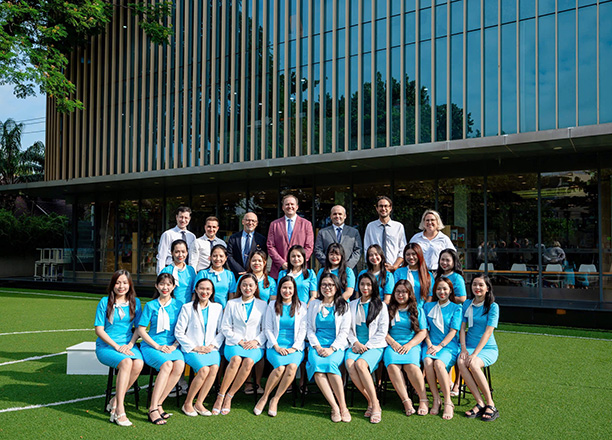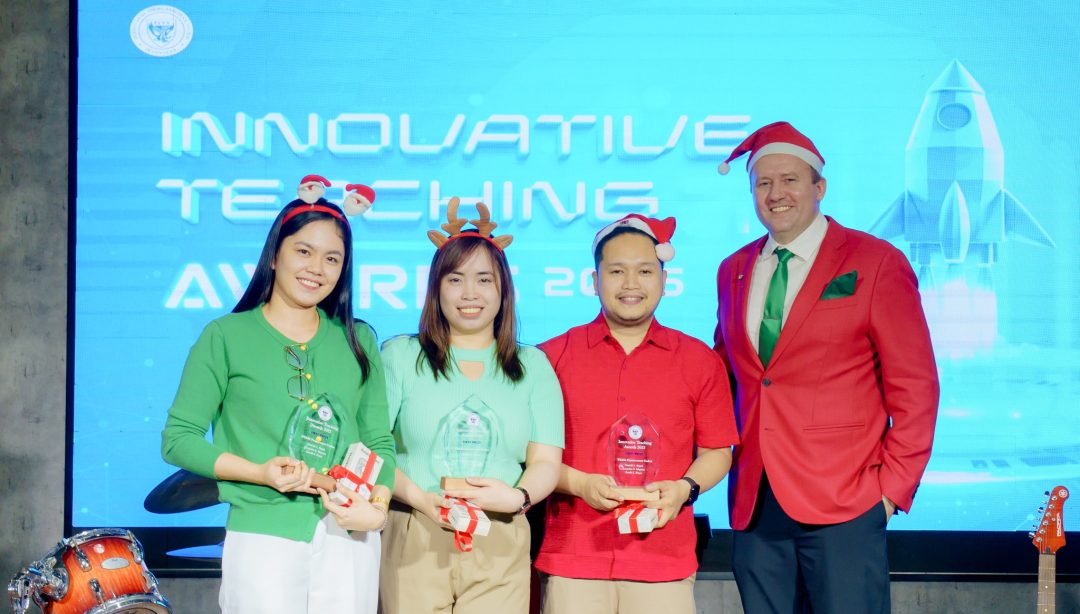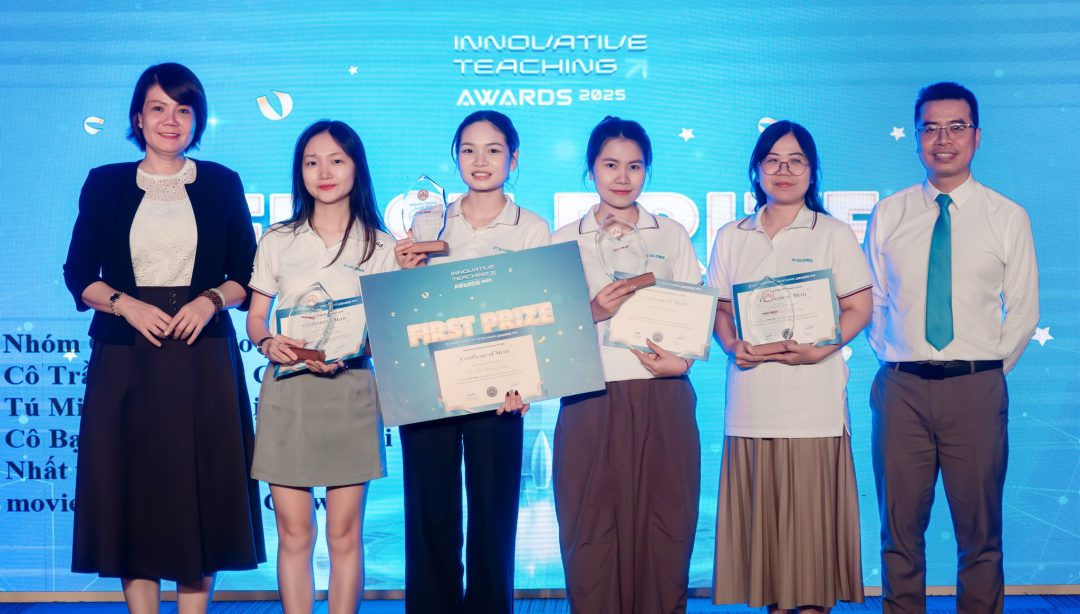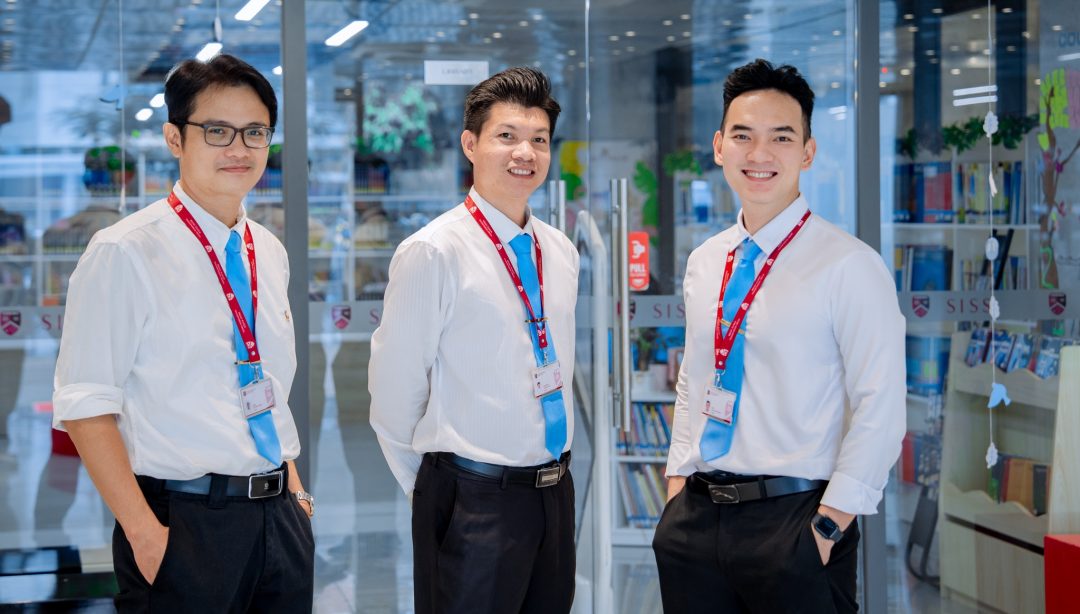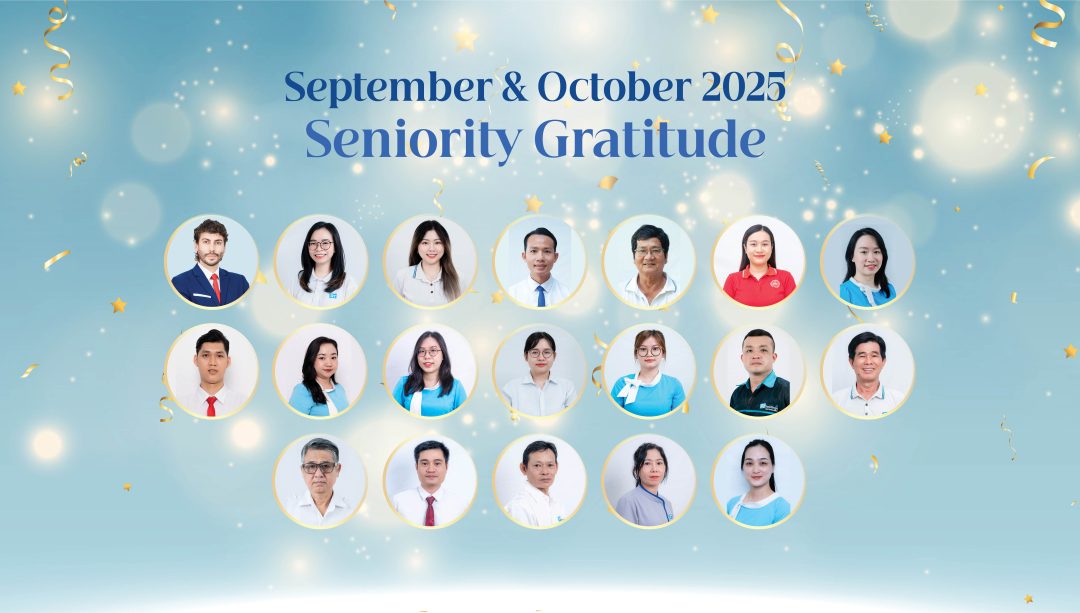19 year of the journey of an educator
After a year of study in the lecture hall of Can Tho University, I arrived in Saigon at around 3 p.m on September 25, 1990, on a long-distance bus that departed Tan Hiep, Kien Giang at 4:15.
At that time, Saigon was not as crowded and bustling as it is today, but it was enough to impress and overwhelm the people of the countryside. I remember that year’s farewell party. Along with a small luggage bag that could only hold a few clothes, having to fit the rest in a sedge basket, I had just over a hundred thousand dongs, carefully wrapped with a few garlic bulbs. That day, Mom only told me “You know, our family is poor, go there to study, don’t dissipate.” Because only education can help people get out of poverty.” That advice didn’t pique my interest, but after a while in Saigon, I was “absorbed” by my mother’s words.
The first day I arrived in Saigon was also the day I had my first English lesson. I remember the textbook “English for Today”, and the basic Informatics class on 44 Tu Xuong, in the Union of Science City School of Engineering. Ho Chi Minh City. That is where I sat and worked in a small classroom. I had no idea what to do with English, or Computer Science at the time, but my biggest and simplest dream was to earn enough money to eat and live on every month. The four years of university in Saigon were extremely difficult, but they helped shape my character and the person I am today.
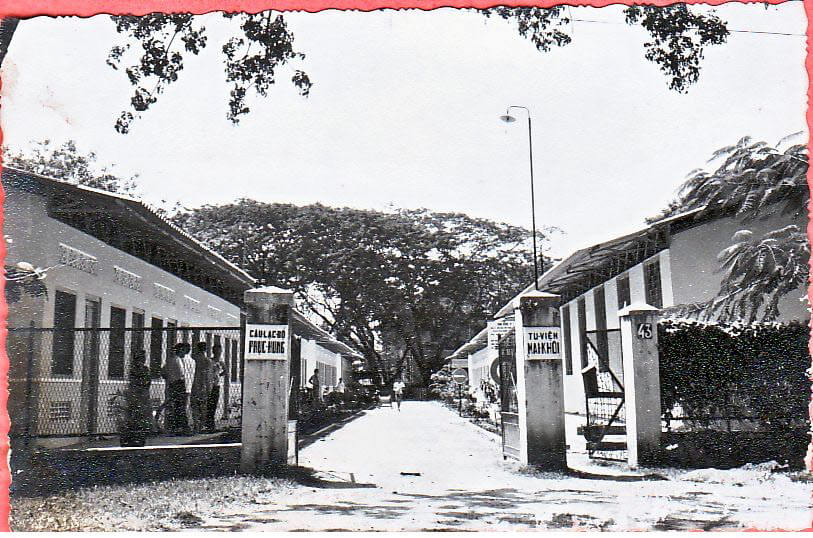
There were those who had careers arranged by their families, or who had a household in Ho Chi Minh City and had easy jobs when they graduated from high school. I do not belong to either of the two groups. But I still was determined to stay in Saigon for ten years to pursue a doctorate degree before returning to my hometown to find a wife. Many from my hometown must rely on “education” to increase their standard of living because many have no money, no land, no variety of fields available. What’s most unfortunate is most have no idea how important a Ph.D. is.
After many times of applying, interviewing, and waiting, I got a job with a modest monthly salary of a few hundred thousand dongs, enough to cover my lodging and meals for the day. The value of this start-up job is not in the salary, but in the opportunity to learn and receive guidance from the boss, Leonardo T. Gomez from the Philippines, who has made a significant contribution to the success of IEDG.
I was able to immediately begin my study plan on schedule thanks to a job, being from a farmer background, being unafraid of difficulties, and spending all of my time on work and living needs with minimal expenses. I decided to remain in Saigon, Eight years flew by, and I reached my goal in 2002, two years earlier than anticipated.
I had no idea what I was going to do with my Ph.D. in 1994, but it was extremely useful and much needed in 2002. Thanks to an article in the Tuoi Tre newspaper, the idea for establishing the Institute of Accounting and Business Administration was born. The main risk was that similar projects were not popular at the time, and few people in the private sector were able to open a private institute. Not because of capital or financial requirements, but because of insufficient legal regulations and guidelines, and partly because the employment requirements had to include people with PhDs, particularly the founder and operator. Instead of studying to find a wife, I found myself studying to open the Institute and be the “Director,” … which is “awesome.”
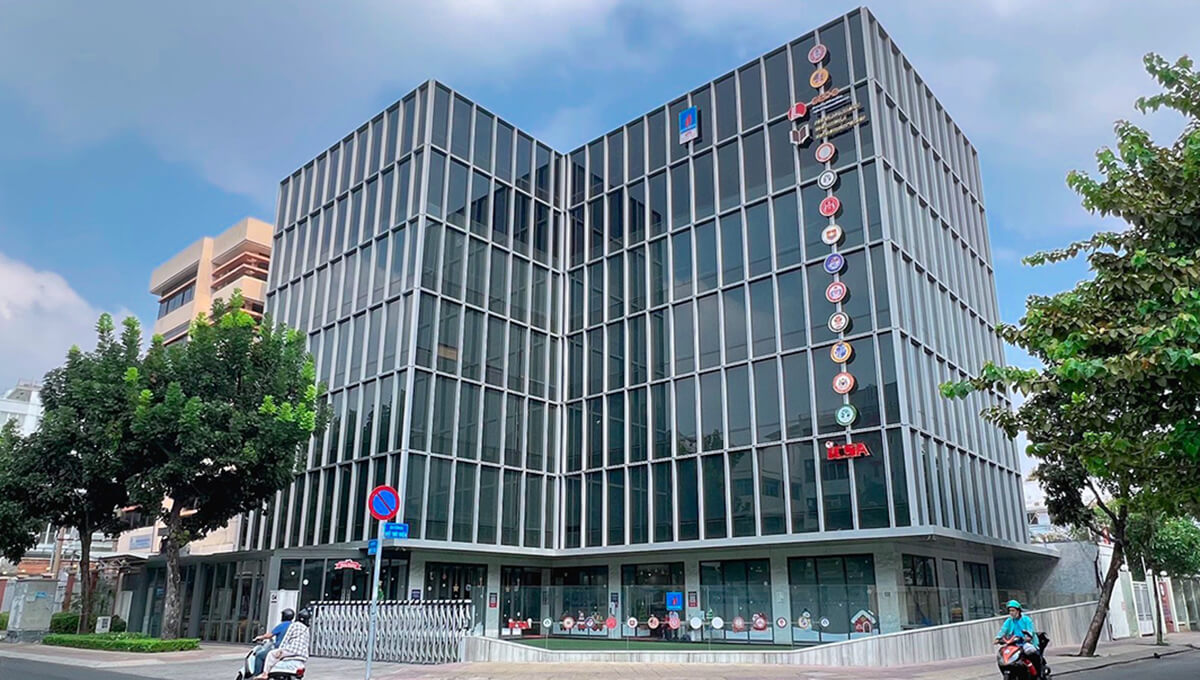
Go through the journey above briefly to see how the story of Indochina Group’s birth and growth was rather haphazard, but it may be fate. Opportunities can present themselves on their own, but taking advantage of them and making them a reality demands strict planning. The better prepared you are, the less risk you face and the greater your chances of success.
IABM was the first member of the System to be established. with the goal of developing it into a center for skill training and practical knowledge for those who had graduated from Intermediate Schools, Colleges, and Universities and belonged to the economic sector based on the Institute of Business Administration’s model outside of Hanoi at the time. The goal was simple, and there was no long-term plan; while I still wanted to be as big as MIT (**), I didn’t know how or by what means to get there. After 10 years of operation, the school’s income was estimated to reach 1,740,000,000 VND per year in 2013. Nobody back then could fathom the scope of the System’s evolution as it is today.
“On this journey of nearly 20 years of developing training projects, there were inevitable ups and downs. Was there ever a moment when you considered stopping to choose another journey with a “more relaxed” and less uncertain direction?” someone asked. The answer was an immediate no. But I asked myself, “Why not someone else but me?” After all, the answer is simple: each person is born and assigned a mission and task based on how passionate they are, and how much they are willing to sacrifice to pursue it. As much as you get from life, try to create more to give back life.
Every success has a cost, and there is no easy path to success. The original business concept at IABM was nearly identical to that of the Hanoi Institute of Business Administration, with only minor differences. As a result, after only 6 months of operation, the initial meager capital we had gained had been depleted but had not yet produced results or revenue. Whatever happens, happens: instead of meetings to chart a new course, there are arguments and blame sessions. In the end, I lost the Vice President position and was thrown out of the Board of Directors meeting in October 2003. That event ignited a change within myself, and led to a breakthrough in thinking, and the change of the system, resulting in the establishment that we have today.
To capitalize on the available advantages, Indochina Group will continue to expand and is projected to become a closed ecosystem with the following industries in the future phase: trade and services, education, investment in education projects, which include grades from preschool to graduate level. Our area of operation has been expanded to include Australia, the United States, Canada, Europe, Japan, Singapore, and other countries.
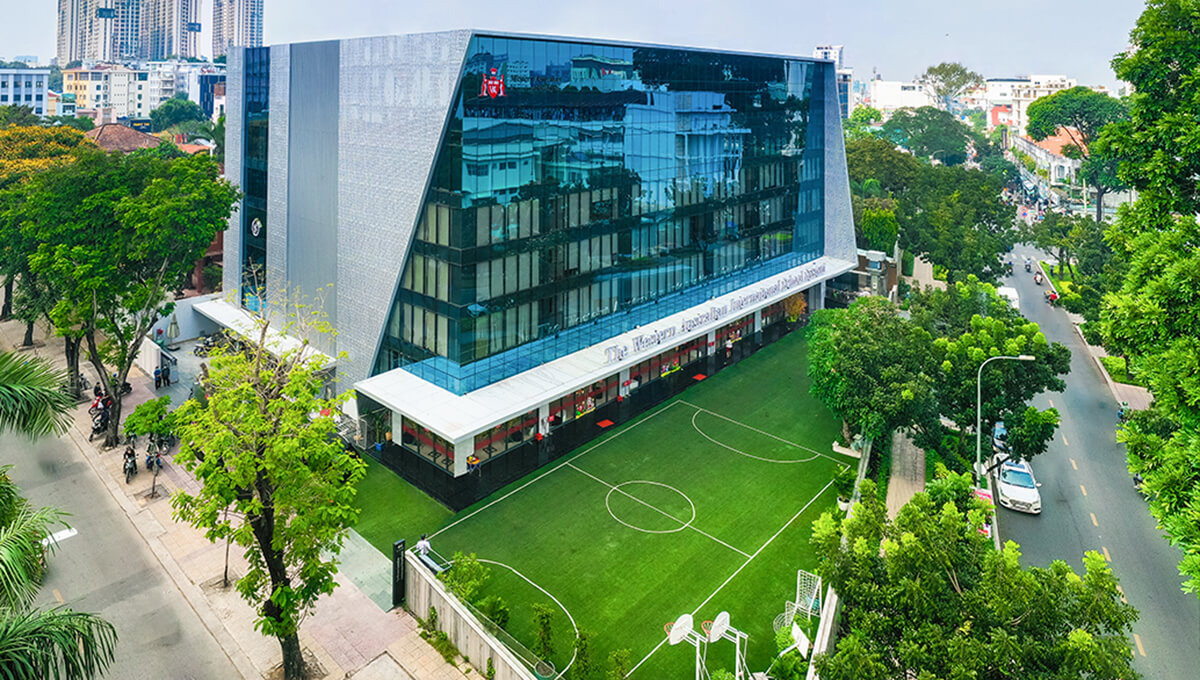
March is a beautiful time of year. It is also a special milestone for Indochina Group as it marks the transition of IEDG from its grass routes, with IABM, to a rich ecosystem as brimming with potential as it is right now. This is also the time for everyone to relax, reflect, summarize, plan, and dive into the future.
If there were only one word to describe what has made the Indochina Group as successful as it is today, it would be “aspiration.” Because it was through aspiration that IABM was born. It was also through aspiration that the founding members had a breakthrough and the strength to overcome the difficulties to find new directions. It is through aspiration that has brought young people with the same passion and direction from all over the country to gather under the roof of Indochina’ Group to join hands to contribute to the development of the Group, and furthermore to aid in the development of the country, and its directions towards prosperity and modern thinking.
That day, I decided to “become an educator” with the desire to earn enough money to support myself and my family. Today, I changed to “educational business” for “passion and aspiration” with the desire to “change”; Changing “education” contributes to changing people’s intellectual standards; Changing “people’s intellectual standards” contributes to changing the appearance of the nation.
March, a month of nostalgia, a month of reflection, a month of future plans.
Chairman
Dr. Tran Van Rung
(*) Address 44 Tu Xuong on that day, now it is 43 Nguyen Thong, Ward Vo Thi Sau, District 3, Ho Chi Minh City, where WASS’s premises and Dr. Tran Van Rong.
(**) MIT: Massachusetts Institute of Technology – a private research university located in Cambridge, Massachusetts, USA.
